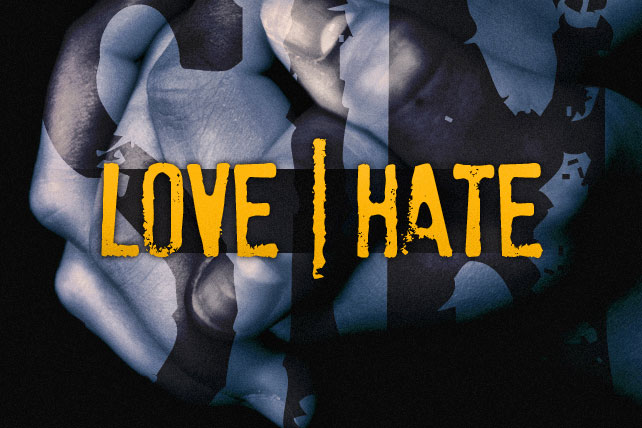If you’ve been in the church for a while, I’m sure you’ve heard this phrase: Love the sinner, hate the sin.
We know we’re called to love all people, but we use this phrase to explain how we can love people even when we don’t agree with how they’re living their lives.
It’s understandable that we’d desire a phrase like this. It’s hard to know how to love someone who is doing things we know are clearly wrong or harmful to them. We don’t know how to love that person while not feeding into the belief that what they’re doing is OK.
Our love for people and our conviction about what they’re doing are two heavy things to carry, and we often find ourselves falling to one side of grace or truth.
And while this is a valid and understandable struggle, I don’t know if this phrase is really the key to solving this tension.
Here are three reasons I’m not sure this phrase is helping us become more like Christ.
1. It introduces hate into the conversation.
The first thing to note is that Jesus has never been about hate. Jesus talks about love and grace and mercy, but never hate. So introducing hate into the conversation is automatically a deviation from His teaching.
Also, if you’ve ever been on the receiving end of “love the sinner, hate the sin” mentality, it’s hard to feel the difference between your sin being the target of the hate and being the target yourself.
2. Jesus didn’t shame people.
The woman at the well and the prostitute in the square are great examples of how Jesus treated sin and the people trapped in it.
In the case of the prostitute in the square, while the Pharisees were up in arms about her sin, Jesus paid little attention to it. He didn’t condemn her, or shame her, or make a point of loving her but not her actions. He just loved her. And then He gently guided her toward a different kind of life.
3. Changing someone’s sin isn’t our responsibility.
“Love the sinner, hate the sin” implies that other people’s sin is our responsibility to fix—as if we’re going to change the sin by treating it a certain way—and that’s just not true. When we make ourselves the “sin police,” we get into murky territory, straying far to the side of truth and losing much of our grace.
We aren’t responsible for fixing, removing or condemning someone’s sin. We’re responsible for love. God takes care of the rest.













